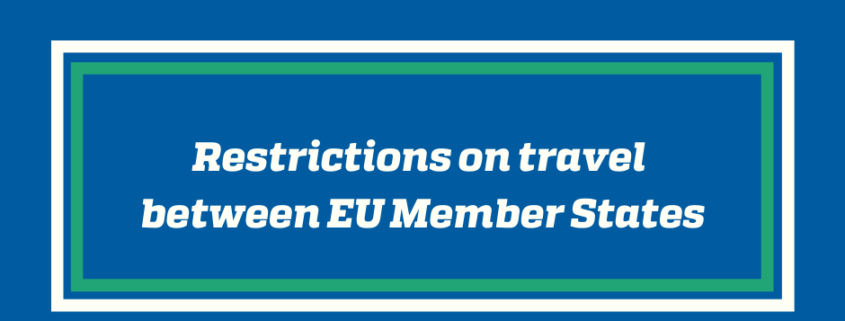Written question to the European Commission and the Council
In connection with the coronavirus pandemic, the Presidents of the European Council and the Commission issued a communication on 15 April emphasising the European approach in the gradual lifting of restrictions. The measures should be based on scientific knowledge, focused on public health, consistent across the Member States and based on respect and solidarity.
In practice, national measures (based on a traffic-light system) vary widely, which is in breach of the prohibition against discrimination on grounds of nationality (Article 18 TFEU) and of the free movement of EU citizens (Articles 20 and 21 TFEU). Applying the principle of reciprocity, some Member States are treating citizens as an epidemiological risk even if they come from an EU country which, according to the health criteria, does not present an epidemiological risk (e.g. Denmark).
The same country is on the list red for some countries and on the orange or green list for others.
1. Is the Commission aware of such measures and has it examined their conformity with European legislation? Does it intend to take action – and if so, what action – in cases where European law and fundamental principles have been violated?
2. Do such cases qualify as a violation of the principle of non-discrimination on grounds of nationality and a disproportionate restriction on the freedom of movement of EU citizens?
3. Is arbitrary reciprocity in the application of the traffic-light system compatible with EU law (the Treaties, Directive 2004/38, the EU Charter, etc.)?
Answer given by Commissioner Reynders on behalf of the European Commission
To limit the spread of the virus, the Member States have adopted various measures, some of which have had an impact on Union citizens’ right to move and reside freely within the territory of the Member States, such as restrictions on entry or requirements for cross-border travellers to undergo quarantine.
Restrictions to the free movement of persons within the Union put in place to limit the spread of COVID-19 should be based on specific and limited public interest grounds, namely the protection of public health. They should be applied in compliance with the general principles of EC law, in particular proportionality and non-discrimination.
Unilateral measures in this area have the potential to cause significant disruptions as businesses and citizens are confronted with a wide array of diverging and rapidly changing measures. This is particularly harmful in a situation where the European economy has already been significantly affected by the virus.
This is why the Commission has adopted, on 4 September 2020, a proposal for a Council Recommendation on a coordinated approach to the restriction of free movement in response to the COVID-19 pandemic.
A coordinated approach among Member States is required to reduce the impact of restrictions on Union citizens and the economy, enhancing transparency and predictability, while ensuring a high level of human health protection.
The recommendation should not be understood as facilitating or encouraging the adoption of restrictions to free movement put in place in response to the pandemic, but rather seeks to provide a coordinated approach in the event that a Member State were to decide to introduce such restrictions.
Answer given by the Council
The COVID-19 pandemic has obliged all Member States to take unprecedented measures aimed at limiting the transmission of the virus and safeguarding public health. The nature of the measures has varied between Member States, depending on the domestic epidemiological situation as well as on other factors.
It is the responsibility of Member States to adopt appropriate measures such as quarantine requirements, testing specifications and travel restrictions in response to serious cross-border health threats. As pointed out by the Honourable Members, those measures have to be taken in accordance with Union law. It is for the Commission, as guardian of the Treaties, to monitor such measures and decide on the follow-up.
Throughout the crisis, Ministers with different areas of responsibility have had numerous exchanges, often in the format of videoconferences. Through these exchanges they have discussed the impact of measures taken to protect public health on the four freedoms enshrined in the EU acquis and have stressed the importance of a coordinated approach to ensure transparency and predictability for citizens and businesses.
In particular, extensive discussions have taken place in the Council in the context of the Integrated Political Crisis Response (IPCR) arrangements, both on health measures and on internal as well as external border restrictions.
Finally, it is worth recalling that, on 4 September, the Commission presented a proposal for a Council Recommendation on a coordinated approach to the restriction of free movement in response to the COVID-19 pandemic, which is currently being discussed in the Council. Following the proposal of the Commission on 4 September, on 13 October the Council has agreed on EU-wide coordination on measures restricting free movement related to the coronavirus pandemic.





Leave a Reply
Want to join the discussion?Feel free to contribute!